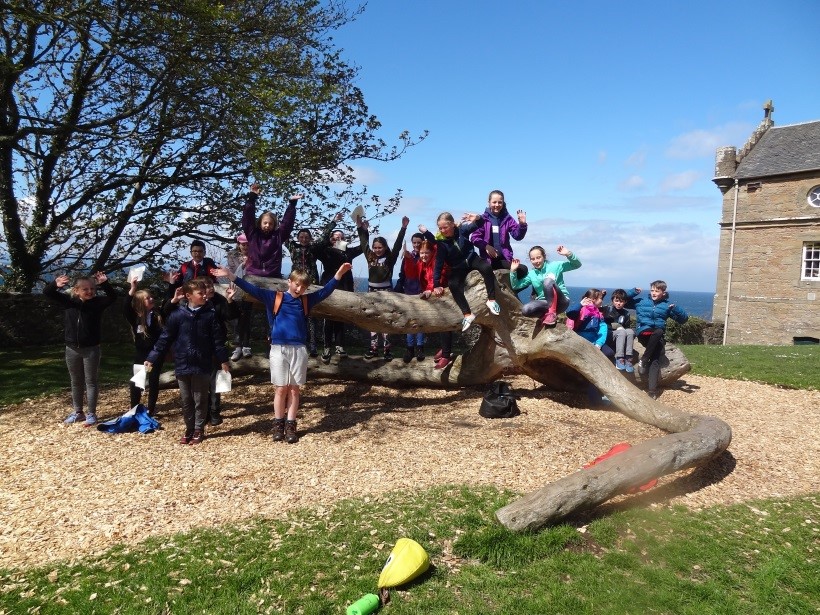author 1+2 Development Officer Team, South Ayrshire Council , ()
On 2 May 2018, South Ayrshire’s outdoor education centre, Dolphin House, was buzzing with the sound of primary pupils speaking French. Dolphin House is situated within the beautiful Culzean Estate, providing a stimulating, natural environment, which was fully utilised.
The event was composed of a variety of cross-curricular workshops which illustrated how to embed language learning throughout a school day. Although essential elements such as daily routines and classroom commands featured in the programme, these were used to support innovative and active experiences. In addition, aspects of learning for sustainability and outdoor learning were also included.
The five primaries in the Marr cluster were asked to participate. Each school sent four upper primary pupils and, as the day progressed, it was obvious that the interactions naturally added to established transition working within the cluster.
The first task was to make a fortune-teller so that the children could ask basic questions about colours, numbers and animals. This was a super icebreaker. Children from each school were then split into two groups for the morning session as each group would be experiencing different workshops.
One group started their morning with a fun game of L’arc de tir (archery). The language focus was on colours and numbers. Children were supported to speak as much French as possible: totalling scores, celebrating achievements, following instructions, etc. They then went back into a classroom setting where they learned how to establish a morning routine in French including days of the week, dates, months, weather and classroom commands. This involved the use of puppets, flashcards, active games and songs.
The other group spent their time on the beach where they carried out a conservation task. They were asked to hunt for natural and manmade items using a checklist with French vocabulary and picture clues. Despite the blustery weather, the children took to their task with enthusiasm! Back in the classroom, they practised their knowledge of parts of the body but with a twist – the Culzean Estate has recently become home to some Highland cattle. In recognition of this fact, a beetle drive activity had been adapted to accommodate this theme. The children took great pride in their artistic efforts!
Prior to lunch, the two groups came back together in order to share the learning with their peers. One of the main aims of the event was to enable the children to teach French in their own schools with confidence. This shared learning opportunity provided them with an initial experience of ‘being the teacher’! Through this feedback session, discussion followed about how to replicate these activities in schools – eg using hula hoops and beanbags for a colour and number target game, or carrying out a litter pick in French in the school grounds.
On the journey through the woodland area back to the bus, children had fun taking part in a military-style, French alphabet march. They were delighted to shout their French and give passers-by a wave!
Feedback from schools has been extremely positive and a week later children are already modelling French to their peers! The next step is to offer this event to other South Ayrshire clusters as we move towards full implementation in 2020.

Return to June 2018 newsletter